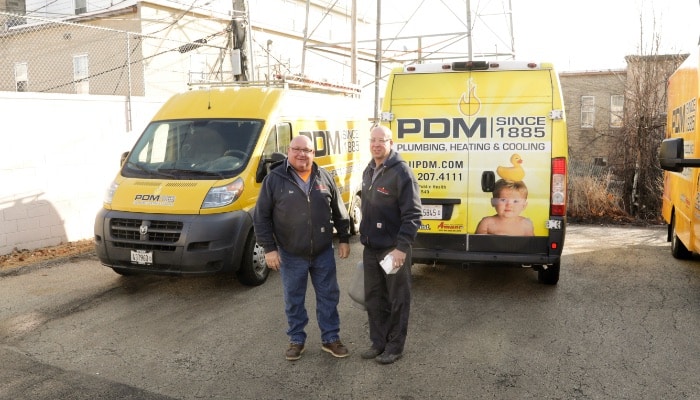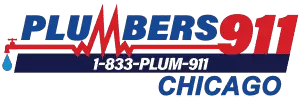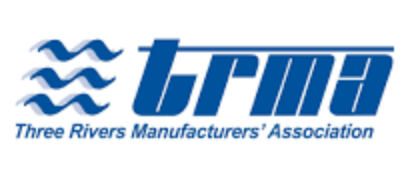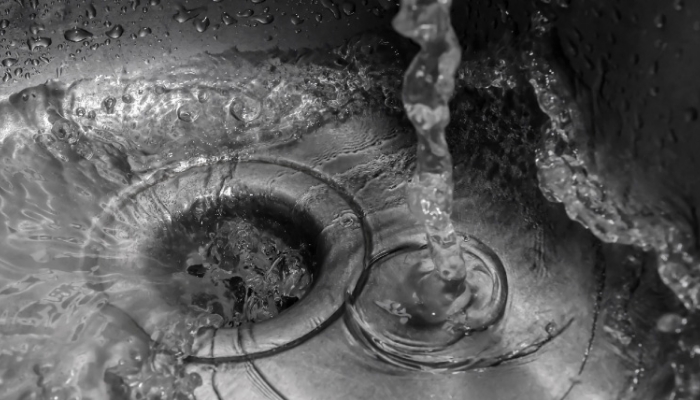
Clogged Drain Plumber In Shorewood Area
Experiencing a clogged drain can be more than just a minor inconvenience—it can be a warning sign of a deeper, potentially hazardous plumbing issue. While the initial reaction might be to tackle the problem with a plunger or a store-bought chemical cleaner, there are certain signs that indicate the issue is beyond a simple fix.
Understanding when to call in a professional plumber is crucial to prevent further damage and ensure your plumbing system functions efficiently. Here’s a list of signs that it’s time to call a plumber for a clogged drain.
Slow Drainage: Don’t Let a Trickle Turn into a Flood (For Homes & Businesses)
Have you noticed water taking longer than usual to disappear down the drain? Whether you’re managing a residence or a commercial property, slow drainage shouldn’t be ignored. It’s often the first warning sign of a clogged drain, and while it might seem like a minor inconvenience at first, it can snowball into a real mess to clean up and nobody using the toilet, shower, or sink.
Beyond the Backup: Why Slow Drainage Matters
While a completely clogged drain brings the problem to a screeching halt with standing water, slow drainage signifies a growing obstruction. This partial blockage acts like a dam, restricting water flow and putting stress on your entire plumbing system. Here’s why slow drainage shouldn’t be taken lightly:
- Increased Pressure: As water struggles to pass the clog, pressure builds up within the pipes. This can lead to leaks, especially at vulnerable joints or older pipes. In worst-case scenarios, excessive pressure can cause pipes to burst, resulting in costly repairs and potential water damage.
- System-Wide Strain: A clog in one fixture can impact others. Imagine a clogged drain in a commercial kitchen. Slow drainage in one sink can back up into others, creating a domino effect that disrupts operations. In homes, a clog in the main drain line can lead to slow drainage throughout the house.
- Breeding Ground for Bacteria: Slow-moving water creates a breeding ground for bacteria and unpleasant odors. This can pose health risks in both homes and businesses.
Don’t Wait Until it’s Too Late
Slow drainage is a red flag on when to call a plumber for a clogged drain. Addressing it promptly can save you from a plumbing nightmare (and the associated repair bill!). For both residences and commercial properties, taking proactive measures is key. Learn more about signs you need to call a plumber.
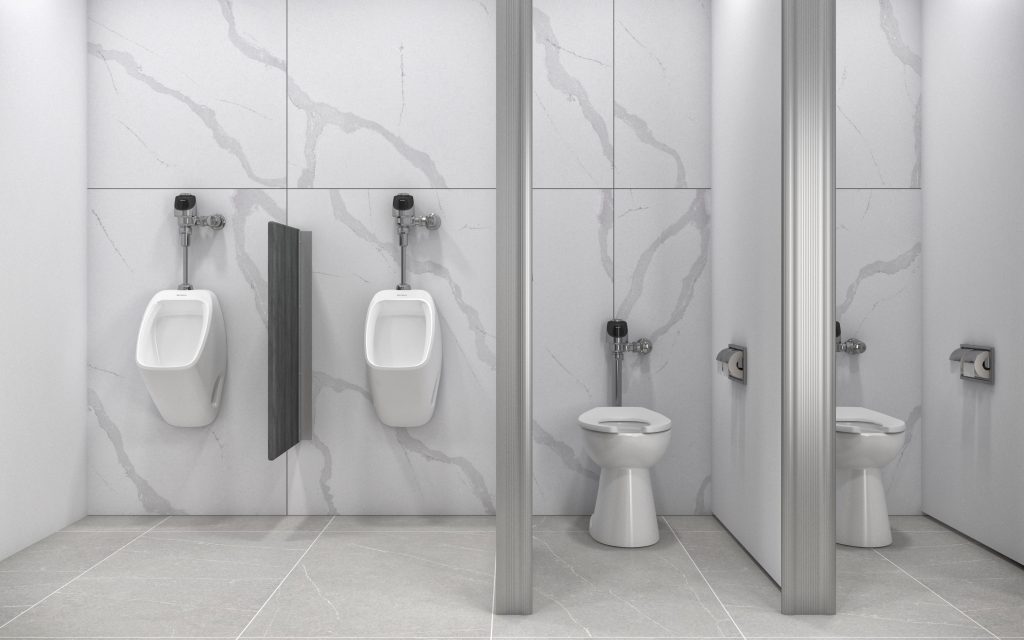
Recurring Clogs: A Sign There’s Trouble Below the Surface
Whether you’re a homeowner or a facilities manager, encountering a clogged drain is a frustrating experience. But what happens when those clogs become a recurring issue, plaguing the same drain over and over? This is a strong signal that a more significant problem lurks beneath the surface, waiting to be addressed.
Why Drain Cleaners Aren’t the Cure-All
Many of us reach for store-bought chemical drain cleaners as a quick fix. While these products may provide temporary relief for minor clogs caused by hair or soap scum, they often fall short for recurring blockages. Harsh chemicals can damage pipes, leading to leaks and bigger headaches down the road. Additionally, these cleaners can only address the clog itself, not the underlying cause.
The Need for Professional Intervention
Frequent clogs point to a deeper issue within the plumbing system. Here’s where professional intervention becomes crucial. A qualified plumber can diagnose the root cause of the clog, whether it’s:
- Tree roots: Infiltration by tree roots is a common culprit for recurring clogs, especially in older homes or commercial buildings with nearby landscaping.
- Pipe damage: Broken, cracked, or misaligned pipes can create chronic drainage problems.
- Mineral buildup: Hard water deposits can accumulate over time, narrowing pipes and causing slow drains that eventually turn into full clogs.
- Improper disposal of materials: Grease, coffee grounds, or non-flushable items can create persistent clogs.
Professional plumbers have the expertise and specialized tools to diagnose and address the root cause of the clog. They may use techniques like drain snaking, hydro-jetting, or video camera inspection to pinpoint the problem and implement a long-term solution. Learn more of the oldest plumber clogged drain expert. Contact PDM or call 815-726-6264 for help.
Investing in Long-Term Plumbing Solutions
While the initial cost of professional drain cleaning may seem higher than a bottle of store-bought cleaner, it’s a wise investment. Addressing the root cause prevents future clogs, saving you money and frustration in the long run. For commercial properties, maintaining a smooth-functioning plumbing system minimizes downtime and disruption to your business. Here are 8 signs you need to call a plumber.
Don’t let recurring clogs become a persistent problem. Contact a qualified plumbing clogged drain expert today for a diagnosis and a lasting solution.
Multiple Clogged Drains: Don’t Let a Small Problem Become a Big Mess!
A clogged drain is a nuisance, but usually a quick fix. However, encountering multiple clogged drains at once, especially in different areas of your building, can signal a much bigger issue lurking beneath the surface. This blog post is aimed at both homeowners and business owners, as clogged drains can disrupt both your daily routine and business operations.
The Main Drain Culprit
Your plumbing system is a network of pipes that carry wastewater away from your property. Imagine it like a tree: smaller branch lines from sinks, toilets, and showers eventually converge into a larger main sewer line. When multiple drains clog simultaneously, it often points to a blockage in this main line, preventing wastewater from flowing freely.
Why Ignoring Clogged Drains is a Recipe for Disaster
Ignoring a clogged main sewer line can lead to a cascade of problems:
- Overflowing Toilets and Drains: As wastewater has nowhere to go, it will back up into the lowest drains, potentially overflowing toilets and creating unsanitary conditions.
- Property Damage: The pressure of backed-up sewage can damage pipes, leading to expensive repairs. In severe cases, sewage can seep into walls and floors, requiring extensive restoration work. For businesses, this can lead to costly downtime and lost revenue.
- Health Risks: Sewage contains harmful bacteria that can pose a health risk if it comes into contact with people or surfaces.
When to Call a Plumber
If you’re experiencing multiple clogged drains, especially in different areas of your building, don’t hesitate to call a professional plumber. They have the expertise and equipment to diagnose the problem, safely remove the blockage, and ensure your plumbing system is flowing smoothly again. Learn more about signs of a sewer drain clog.
Taking Action Saves Time and Money
Addressing a clogged main sewer line early on can save you significant time, money, and hassle. By calling a “Plumber for clogged drain” as soon as you notice the issue, you can prevent costly repairs and potential health risks.
Remember: A functioning plumbing system is essential for a healthy and productive environment, so don’t let a small clog become a big mess! Contact PDM or call 815-726-6264 for help.
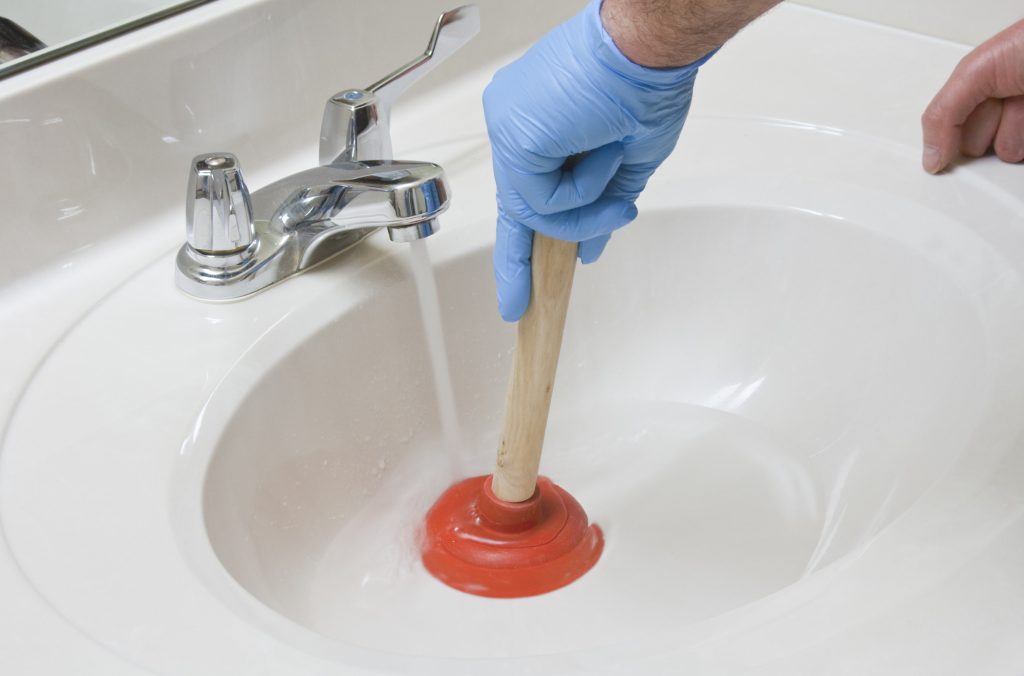
Foul Odor? Don’t Let a Clogged Drain Turn into a Health Hazard
A foul odor wafting up from your drain is more than just unpleasant – it’s a potential sign of a serious clog. Whether you’re a homeowner or a business manager, ignoring this issue can lead to costly repairs and even health risks down the line.
Beyond the Stench: The Dangers of Clogged Drains
While a blocked drain might seem like a minor inconvenience at first, leaving it untreated can have significant consequences. Here’s why you shouldn’t delay calling a clogged drain plumber [Plumber clogged drain]:
- Sewage Backup: A stubborn clog can prevent wastewater from flowing freely, leading to a backup of sewage into your drains. This not only creates a disgusting mess but also poses a major health risk. Sewage contains harmful bacteria and viruses that can cause respiratory problems, skin irritation, and even serious illnesses.
- Pipe Damage: Persistent clogs put immense pressure on your plumbing system. Over time, this strain can lead to cracked or burst pipes, resulting in costly repairs and potential water damage to your property.
- Unhygienic Environment: A clogged drain creates a breeding ground for bacteria and mold. This can not only worsen the foul odor but also contribute to a generally unsanitary environment, especially in commercial settings where hygiene is paramount.
Taking Action: The Importance of Early Intervention
The good news is that addressing a clogged drain early on is a simple and affordable solution. By calling a professional plumber clogged drain [Clogged drain plumber] at the first sign of trouble, you can:
- Prevent a Bigger Problem: A timely intervention can prevent the clog from worsening and causing more extensive damage to your plumbing system.
- Protect Your Health: Addressing the clog promptly minimizes the risk of exposure to harmful bacteria and viruses lurking in sewage backup.
- Save Money: Early detection and treatment are significantly cheaper than dealing with a burst pipe or a major sewage backup.
Don’t wait for a minor inconvenience to turn into a major health hazard. If you notice a persistent foul odor coming from your drains, contact a reputable plumber clogged drain right away. Contact PDM or call 815-726-6264 for help.
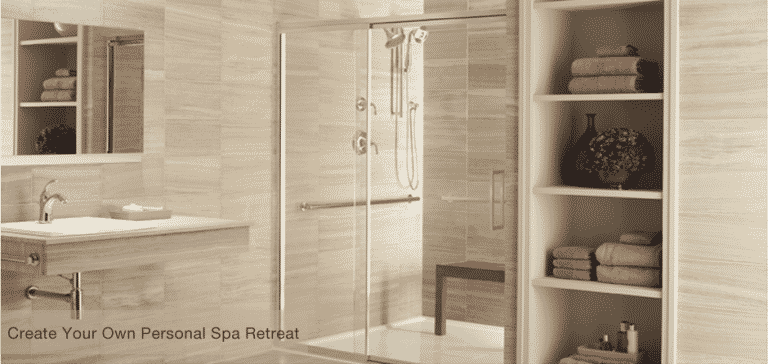
Gurgling Sounds: Don’t Let Your Drain Become a Symphony of Woes
Have you ever been washing dishes or taking a shower and heard an unsettling gurgling sound coming from the drain? While it might sound like a strange soundtrack to your daily routine, it’s actually a sign that something’s amiss in your plumbing system.
This gurgling isn’t just an annoying quirk – it’s a telltale sign of trapped air in your pipes, often caused by a clog. Whether you’re a homeowner or a business manager, ignoring this symptom can lead to bigger problems down the line (literally!).
Why Trapped Air Matters
Every drain system has a P-trap, that curved section of pipe underneath your sink or fixture. This P-trap holds a small amount of water, which acts as a barrier to prevent sewer gases from escaping back into your building.
When a clog forms in the drain line, it can disrupt the airflow within the system. Water struggles to flow freely, causing air to get trapped behind the blockage. This trapped air then tries to escape, resulting in the gurgling sounds you hear.
Why You Shouldn’t Let Your Drain Sing the Blues
While a single gurgle might not seem like a big deal, it shouldn’t be ignored. Here’s why:
- Drain Backup: A minor clog can quickly become a major one, leading to slow-moving drains or even complete backups. This can be a major inconvenience at home and a costly disruption to your business.
- Pipe Damage: Persistent clogs put additional strain on your pipes. Over time, thispressure can lead to cracks and leaks, requiring expensive repairs.
- Health Concerns: Sewer gases trapped in your pipes can contain harmful bacteria. While the P-trap usually prevents these gases from escaping, a clog can disrupt this barrier and pose a health risk.
Taking Action: The Power of Prevention
The good news is that addressing a gurgling drain early can save you time, money, and a whole lot of hassle. Here’s what you can do:
- For minor clogs: Try natural drain cleaning methods like a baking soda and vinegar solution.
- For persistent clogs: Consider using a plunger or a drain snake.
- For stubborn clogs or complex plumbing issues: Don’t hesitate to call a professional plumber like [Plumber for clogged drain] or [Clogged drain plumber]. A qualified plumber can diagnose the problem, remove the clog safely, and ensure your drains are flowing freely once again.
By taking action at the first sign of trouble, you can keep your drains healthy and prevent a gurgling symphony from turning into a plumbing nightmare. Remember, a little preventative maintenance goes a long way in keeping your home or business running smoothly! Contact PDM or call 815-726-6264 for help.

Water Backup: Don’t Let a Trickle Turn into a Flood
Experiencing water backing up out of a drain or toilet is a cause for immediate concern. This seemingly minor inconvenience can be a sign of a much larger main sewer problem.
Don’t Ignore the Backup!
Water backing up is a strong indicator of a clog or a problem with the sewer line. A clog can be caused by a build-up of grease, hair, or other debris in the pipes. Sewer line issues can range from root intrusion to broken or collapsed pipes. Regardless of the cause, water backups pose a serious threat:
- Water Damage: Overflowing water can quickly damage floors, walls, furniture, and belongings. This can lead to expensive repairs and replacements.
- Health Hazards: Sewage backup introduces bacteria and other harmful contaminants into your home or business. This can pose serious health risks to anyone who comes into contact with it.
When to Call a Plumber for a Clogged Drain
While some minor clogs might be tackled with a plunger or drain snake, a water backup signifies a more serious issue. Here’s when it’s time to call a professional plumber:
- Multiple drains are backing up: This indicates a clog in the main sewer line, which requires professional attention.
- The backup is accompanied by sewage odors: This is a clear sign of a sewer line issue and requires immediate action.
- Your attempts to unclog the drain fail: Don’t waste time and risk further damage.
Taking Action is Key
A prompt response to water backups can save you from a major headache (and potentially a hefty bill). By calling a licensed plumber immediately, you can:
- Minimize water damage: The faster the problem is addressed, the less damage your property will sustain.
- Protect your health: A plumber can safely identify and address the source of the backup, minimizing exposure to harmful contaminants.
- Prevent future problems: Professional plumbers can not only fix the current issue but also recommend preventative measures to avoid future backups.
Don’t wait until a trickle turns into a flood! For both residential and commercial properties, addressing water backups, gurgling sounds, odors or slow drains swiftly is crucial to protecting your property and the health of everyone around you. Contact PDM or call 815-726-6264 for help.

